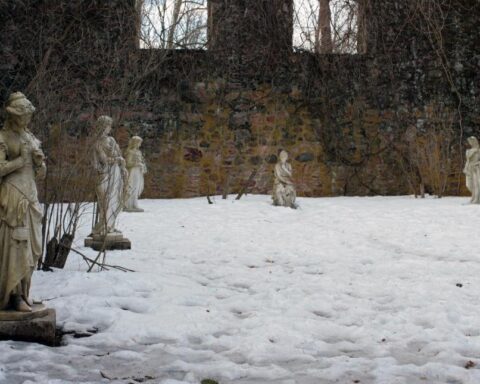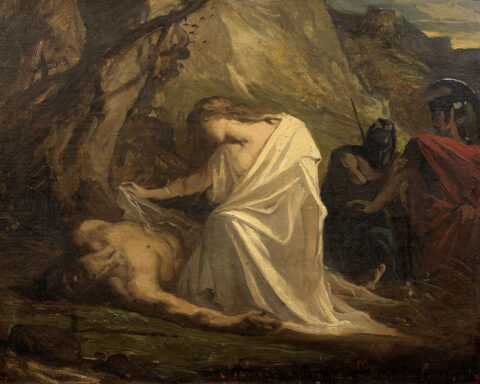As easy as it is to feel cold nostalgia
on a raw November night, I take
solace by escaping into Netflix.
A series about World War Two
opens with the usual preamble
of life before the conflict began,
wide shots of farms main streets,
sunsets and grain, buccolic crops,
shoppers at a drugstore window
or children riding tricycles on lawns.
I watch as ten hard years of century
collapse into painfully quiet narration
when, unexpectedly, a familiar appears:
my mentor, Paul Fussell. I assisted him
with his book about the war he fought,
feeding him thoughts on British poetry
and poets who worked for the OSS.
Fussell died almost seven years ago
yet it was good to see him live again,
his frank voice, his laughter, and tears.
He won a Purple Heart for wounds
deeper than any words. As the series ended
I felt his absence as if he’d died again.
I found a documentary from RTE
where Seamus Heaney discussed in detail,
the poetics of thickets, boles, and spawn,
and synonyms for roots and tendrils,
his narrow eyes widening with wonder
spreaking of how the marvellous is life
and miracles dwell like days among us.
He, too, was my mentor, penning a letter
when my first book dropped, stopping the flow
of a signing line to say someday
we must have our pint. His ghost haunts
the silence as the final the credits
roll to black, and I wish poetry
flowed clear and pure and ever endless
as a Wicklow trout stream over stones.
The rodium angel perched on my nib
says I must nurse its wings to flight;
the dead depart but leave their words
like seeds to plant in fertile minds
for entire worlds wait to be written
and what they voice has never been heard.
Take a deep breath, I hear them say.
Clear your head. Begin and begin.
I step out for air on my front porch
and see their stoic faces in my breath.



